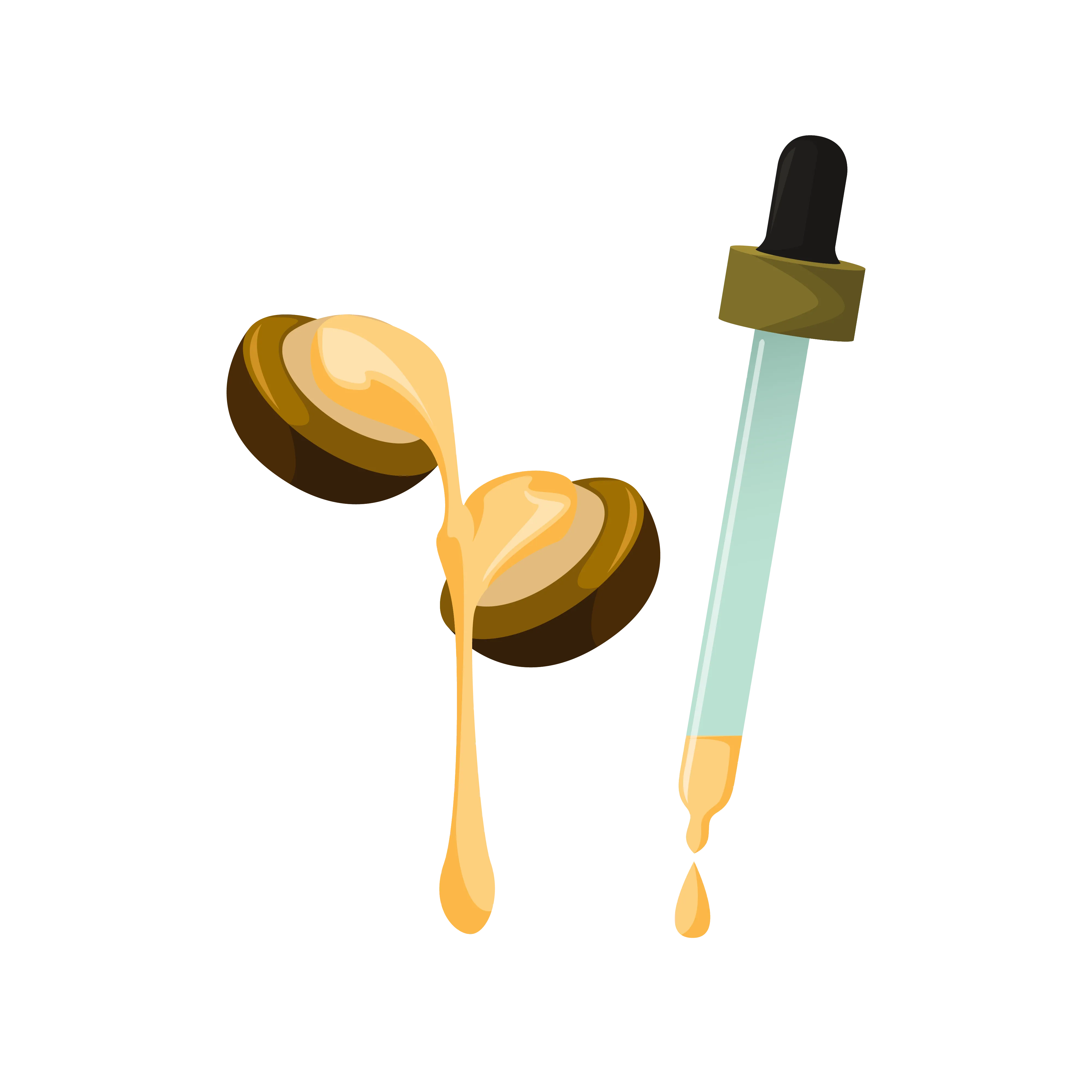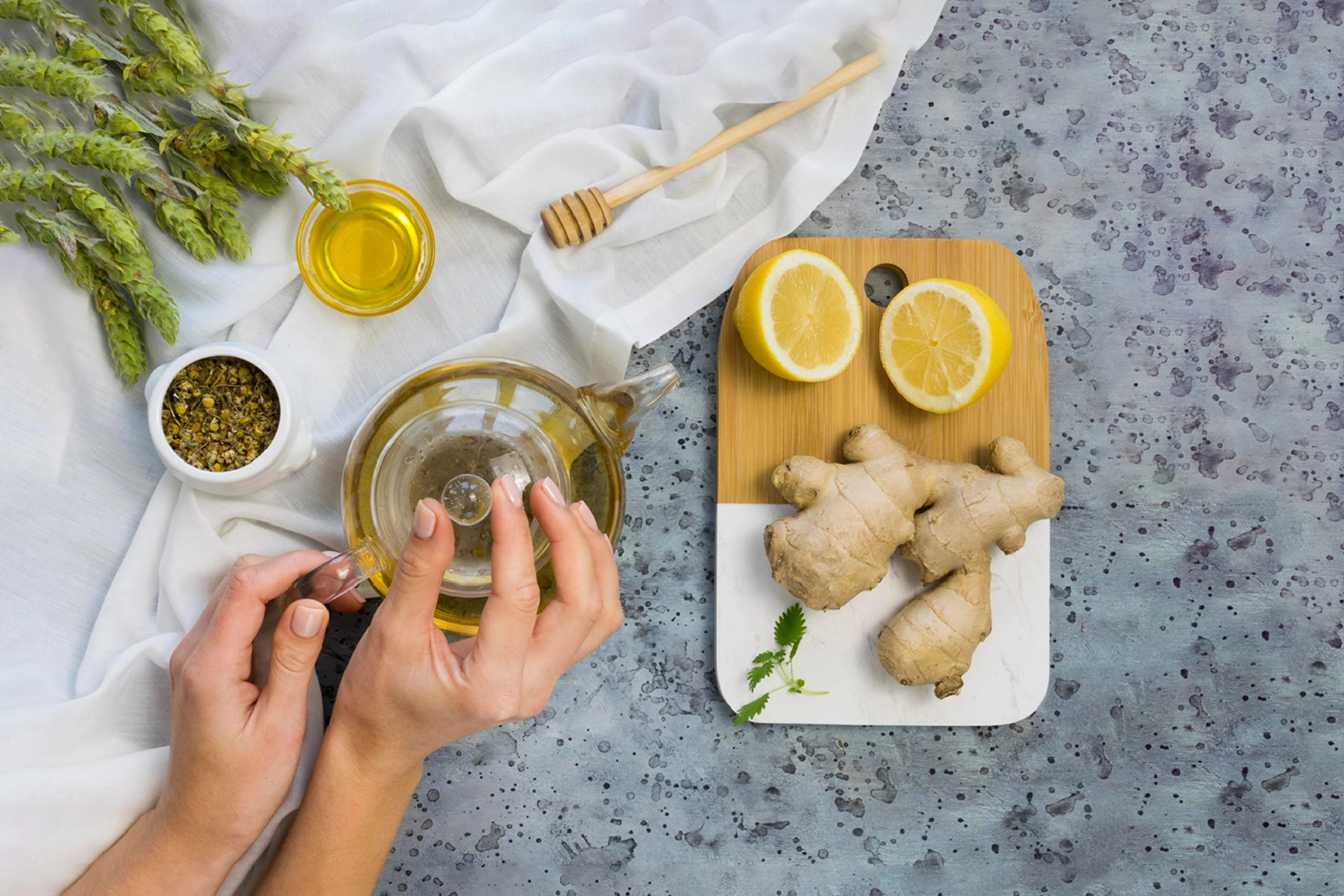Ayurveda | 9 min read
7 Benefits of Jojoba Oil For Skin, Side Effects, How to Buy
Medically reviewed by
Table of Content
Key Takeaways
- Manufacturers started adding jojoba oil to food and cosmetics in the 1970s
- Jojoba oil is extracted from jojoba seeds and used in hair care products
- The benefits of Jojoba oil for hair include dandruff control and faster growth
Ayurvedic medicine originated around 3,000 years ago and is still widely used in the healthcare industry [1]. Ayurvedic oils are often used in skin, hair, and beauty products for their amazing properties. Whether it’s sesame, neem, or coconut oil, each natural oil provides multiple health benefits. Jojoba oil is one such ayurvedic oil that is gaining popularity because of the various benefits it offers. This wax-like oil is extracted from jojoba seeds and makes its presence felt in numerous beauty and hair care products. Due to its versatility, manufacturers in the 1970s started adding this oil to food and cosmetics.
This oil is rich in vitamins such as vitamin C, vitamin B, vitamin E, and minerals like zinc and copper. This nutrient-rich oil does wonders for your skin and hair. Jojoba oil benefits for hair include moisturizing, damage repair, and protection. Read on to know more about why you should be using this oil for hair!

Additional Read: Ayurveda Tips In Monsoons
What is Jojoba Oil?
Jojoba extract, also known as jojoba oil, is derived from the seeds of the jojoba shrub. The oil accounts for approximately 50% of the Seed. It gets extracted through cold pressing, a method that helps the oil retain its nutritional value.
Jojoba oil contains nearly 98% pure waxes, hydrocarbons, sterols, and vitamins, with only a few triglyceride esters [1]. When jojoba oil gets applied to the skin's surface, the waxy substance causes the skin's outer cells to swell and create a moisture barrier, similar to sebum. Jojoba oil, a valuable commodity, does not degrade in the jar or on the skin.
Other applications for the oil include pharmaceuticals, such as cosmetic, topical, and transdermal products, as well as industrial applications, such as insecticides, lubricants, and bioenergy.
Benefits of Jojoba Oil
Jojoba oil benefits range from collagen production to antioxidant and anti-inflammatory properties. What distinguishes jojoba from its competitors is that it is a wax ester rather than an oil, making it extremely shelf stable.
It preserves oils well and is used as a preservative in many formulas, particularly those containing water. Jojoba is a simple, natural solution for maintaining the moisture barrier.
Jojoba is also hypoallergenic and noncomedogenic, which means it is unlikely to cause allergic reactions or clogged pores. It also has antiseptic and antibacterial properties, as well as Vitamin E.
Skin Benefits
When jojoba oil is applied to the skin, it creates sebum, an oily substance that human bodies naturally produce. As a result, it restricts the body from producing additional oil on the skin because the body's requirement for skin hydration is already satisfied. This reduces clogged pores and acne significantly. Additionally, skin feels moisturised and glowing after its application.
Jojoba oil is a great natural option for improving your skin and hair care. There are multiple uses of Jojoba oil for people who suffer from sensitive skin, dry skin or hair, acne, or dandruff may benefit from using jojoba oil on a daily basis. Furthermore, people suffering from skin conditions such as eczema can benefit from jojoba oil products.
Jojoba oil benefits for skin and also help those with eczema symptoms and can be used to hydrate people whose sebaceous glands aren't producing sebum normally. Because of its water-controlling properties, it can also improve skin softness and contribute to improved skin movement, preventing cracks and tears on the surface.
It can also be found in over-the-counter beauty products like moisturizers, oils, conditioners, and even lipsticks.
Hair Benefits
The uses of jojoba oil for hair are extremely beneficial and can be found in a variety of beauty and health products.. After jojoba oil was added to the hair straightening product, it was shown to help condition hair, add protection, and improve breakage resistance. It may also help to improve hair shine.
Jojoba oil is also used in shampoo and conditioner, with the claim that its properties help clean and moisturise hair simultaneously. Its sebum-like properties have also been noted to help make hair more manageable and reduce excess oil.

Good for Moisturizing Hair
Jojoba is the only plant out of the 2,50,000 identified plant species that produces large quantities of liquid wax esters. This natural restorative wax ester is used as an emollient to moisturize and soften all skin and hair types [2]. The oil is in demand for its lightweight and non-sticky nature. Its nourishing ingredients also ensure that your hair is hydrated.
Helpful in Treating Dandruff
A study conducted on volunteers with hair fall and dandruff problems reported that using jojoba oil was an effective way to control these issues [3]. The conditioning and nourishing properties of this oil make it a natural dandruff solution. It restores your scalp’s natural pH balance. Further, the palmitic acid and stearic acid in the oil keep dandruff away.
Promotes Hair Growth
The nourishing properties and essential nutrients in this oil make your hair roots stronger. This helps in preventing hair fall and promoting growth. Minerals like zinc found in jojoba oil are also known to boost growth. This oil for hair growth works wonders by diffusing the buildup and dirt on the scalp. Since these may be blocking new hair follicles, eliminating them ensure that your hair grows faster.
Jojoba Oil for Dry Scalp Treatment
Jojoba oil for hair can treat dry scalp issues since it is similar to sebum [4]. The oil can help restore the natural moisture and pH balance of the scalp due to its antifungal and antibacterial properties. This multi-beneficial oil can also stimulate hair growth, soothe psoriasis [5] and reduce eczema. It moisturizes your scalp and hair without making it greasy.
Prevent Hair Loss
Because of its hair-protecting benefits, jojoba oil is widely used in hair restorative treatments. Apart from hair, the oil can make your skin and nails healthy too due to its rich content of vitamins and minerals. Vitamins B, C, and E along with copper and zinc work together to promote regrowth, thickness, and strengthen your locks.
Side Effects of Jojoba Oil
When applied topically, this oil is extremely safe for many people. Jojoba oil side effects may include rashes and allergic reactions. It may also cause hives. However, it is hypoallergenic, and adverse reactions are rare. Before applying the oil to your skin, perform a patch test if you are concerned about an allergic reaction. Never take the oil orally because it contains chemicals such as erucic acid, which can cause heart damage and other side effects. Jojoba oil is only for external use and should not be consumed.
If you have any reaction, stop using the oil right away. Another severe reaction to using the oil is anaphylaxis, which is extremely rare. Never buy dark amber jojoba oil because it may be degraded by sunlight. One of the simplest ways to obtain this is to simply purchase a shampoo or conditioner that contains jojoba oil as a natural ingredient. Before using jojoba oil for hair, consult your doctor if you are pregnant or breastfeeding.
Try a Jojoba Hot Oil Treatment
Applying hot oil to your hair and scalp has many benefits. It increases the strength of your hair, reduces dryness, provides relief from dandruff, and increases blood flow in the scalp. However, ask your doctor or dermatologist before applying hot oil on your scalp if you have skin conditions like psoriasis and eczema.
To apply, first, wash your hair and heat the oil. Make sure you don’t make it too hot. To prevent the jojoba oil for hair from falling on your clothes, place a towel on your shoulders. Then, run a brush through your hair to unbind the knots and apply the oil. Massage your scalp and cover your head with a towel for around 20 minutes. Then rinse out the oil completely from your hair and use your normal conditioner. You can follow this treatment once a week or every few days if your hair is very dry.
How to Buy the Best Jojoba Oil for Hair Growth
Shop for pure jojoba oil for hair that is 100% organic, unrefined, and cold-pressed. Avoid oils that contain preservatives and other chemicals as they may cause side effects including eczema and allergic reactions. Look at the ingredients list before buying the oil. Pure jojoba oil will have a color ranging from yellow to gold. If the oil simply sits on top of your skin, it may be adulterated or of lower quality. So, be careful before buying ayurvedic oils.
Additional Read: Health Benefits of Castor OilTake the proven ayurvedic route and benefit from jojoba for hair care! If you want to know more or experience excessive hair fall or dandruff, consult an ayurvedic expert to get personalized advice. Book an online doctor consultation on Bajaj Finserv Health in minutes and get advice from AYUSH specialists.

FAQ
What is jojoba oil good for?
Jojoba oil is beneficial for a variety of conditions, including acne, psoriasis, sunburn, and chapped skin. Jojoba oil benefits for hair regrowth in those who are bald-headed.
Can I use jojoba oil on my face every day?
There is no one way to use jojoba oil correctly. The frequency and method you use depend on the results you want to achieve. That being said, jojoba oil is best used in the evening. You can use jojoba oil maybe once or twice a day if you have dry skin. Use it every other day if you have oily skin.
Does jojoba oil grow hair?
Jojoba oil moisturises and nourishes your hair while also stimulating hair growth and soothing dry scalp conditions such as eczema and psoriasis. Jojoba oil for good hair improves scalp health and controls sebum production on your scalp.
Is jojoba oil good for under the eyes?
The vitamin E and fatty acids in jojoba oil nourish your skin while restoring its elasticity. Jojoba oil can penetrate deep into the skin layers due to its similarity to human sebum oil. This hydrates the skin around your eyes from the inside out, nourishing it and reducing dark circles.
Does jojoba oil clear dark spots?
Because of its high Vitamin E content, jojoba oil is excellent for lightening and fading dark spots.
Does jojoba oil cause wrinkles?
No, on the contrary, Jojoba oil for face benefits includes anti-wrinkle properties, which delay the appearance of wrinkles on the face. It contains Vitamin E, a powerful antioxidant that fights free radicals that cause cell damage and thus protects your skin from early signs of ageing. Jojoba oil is excellent for treating wrinkles, acne, blemishes, and dark spots.
Can we use jojoba oil for skin lightening?
Yes, you can use jojoba oil to lighten your skin. As a face pack, combine jojoba oil, honey, banana, and aloe Vera gel. After 15 minutes, rinse it off for radiant skin.
References
- https://www.britannica.com/science/Ayurveda
- https://www.longdom.org/open-access/study-of-jojoba-simmondsia-chinensis-oil-by-gas-chromatography-2329-6836-1000283.pdf
- https://pubmed.ncbi.nlm.nih.gov/24653557/
- https://juniperpublishers.com/ctbeb/pdf/CTBEB.MS.ID.555952.pdf, https://www.psoriasis.org/about-psoriasis/
Disclaimer
Please note that this article is solely meant for informational purposes and Bajaj Finserv Health Limited (“BFHL”) does not shoulder any responsibility of the views/advice/information expressed/given by the writer/reviewer/originator. This article should not be considered as a substitute for any medical advice, diagnosis or treatment. Always consult with your trusted physician/qualified healthcare professional to evaluate your medical condition. The above article has been reviewed by a qualified doctor and BFHL is not responsible for any damages for any information or services provided by any third party.





